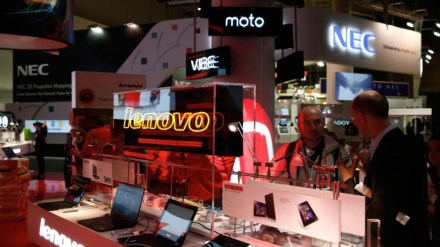Personal computers (PCs) and laptop maker Lenovo expects the demand in the segment to grow in the second half of the year backed by artificial intelligence (AI) features and upgrade to Windows 11. The company expects the growth to be largely in the commercial or enterprise segment and premium gaming laptop segment in the consumer space.
“We do see some stimulus and demand on the premium coming through AI. The hope is that with AI, the commercial PC demand along with Windows 11 refresh should grow in the second half,” Shailendra Katyal, managing director at Lenovo India said at a media roundtable on Wednesday.
According to Katyal, the reason for a slowdown in the commercial PC segment in the industry was due to the fact that the enterprises were waiting for AI to come before they plan to refresh their assets – laptops and PCs. Of the $2 billion annual revenue in the country, PCs segment contribute about 54% to the company’s topline. He said that the India market for Lenovo has been an outlier compared to global markets as it has also outpaced Japan on the total addressable market.
Comments from Katyal assume significance as the PC market in the country, which includes desktops, notebooks, and workstations, continued its weakness for the second straight year in 2023 with flat sales, according to analysts. Lenovo is the second largest player in the segment with a 17% market share, analysts said.
A low household penetration of PCs of around 10-12% and replacements of old devices, also gives the company to expect good growth going forward.
Lenovo expects the growth of the PC market in the country to be in low-single digits this year and will be in high single digits next year as more AI features come in and the market gets mature.
On the AI front, Lenovo is banking on on-device generative AI features like Microsoft Copilot, instant translation, optimised performance especially for gaming, among others, that drives productivity among users and enterprises by offering lower latency, less power consumption, and much higher speed of execution of code. The company is also looking to develop its own generative AI feature.
“In the next two to three years, 70% of the devices will be AI-native. I think there is a huge opportunity in the consumer space, but initially, it will be in the premium space. Then you will see that these AI capabilities will flow into the rest of our product roadmap,” said Luca Rossi, president and EVP at Intelligent Devices Group (IDG), Lenovo. For the AI solutions in the devices, Lenovo is not looking to charge its customers as of now, Rossi added.
In the smartphones segment too, Lenovo will launch AI features in its Motorola phones soon, Katyal said.
On the India manufacturing plans, Katyal said the company has been manufacturing PCs in the country for the last 20 years. At present, Lenovo makes 100% of its Motorola phones in the country, for which it has tied up with domestic contract manufacturer Dixon Technologies. The company exported over a million phones last year to North America.
Lenovo has its own manufacturing plant in Puducherry, where it manufactures its full consumer and commercial range, including desktops, notebooks, and workstations, including the popular IdeaPad notebook computers.
“We are moving in line as the government is promoting more local manufacturing and exports. The IT hardware PLI 2.0 was recently launched, so we will ramp up our capacity both in-house and with the third-party manufacturers in the next 2-3 years,” Katyal said.
In the next few years, Lenovo is also looking at manufacturing high-end graphic processing units (GPUs) products especially to cater to the data centers. The company is also looking to export its services and solutions to businesses, besides PCs and smartphones.
“We’ve been investigating it to understand how do we actually go implement that – whether it’s in our existing facilities or do we look at some other type of locations and manufacturing partnerships to do that. But it is certainly needed as we are ramping up our data center business,” said Matthew Zielinski, executive vice president and president, international markets at Lenovo.
Lenovo recently became compliant with the government’s preferential market access guidelines, by launching made-in-India motherboards. The scheme requires companies to source 50% of components locally to participate in government tenders.
